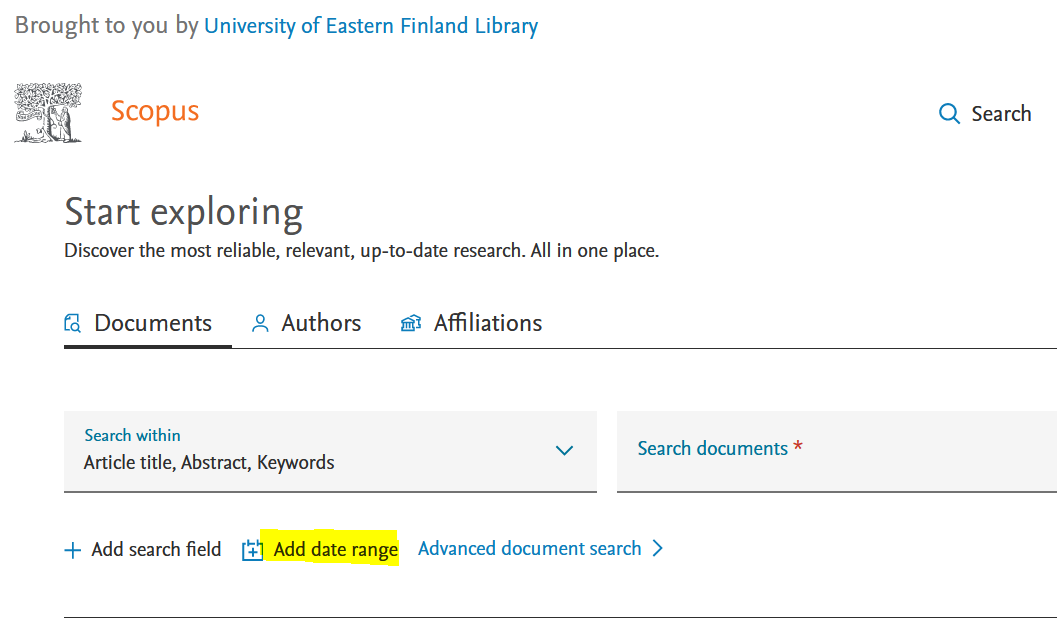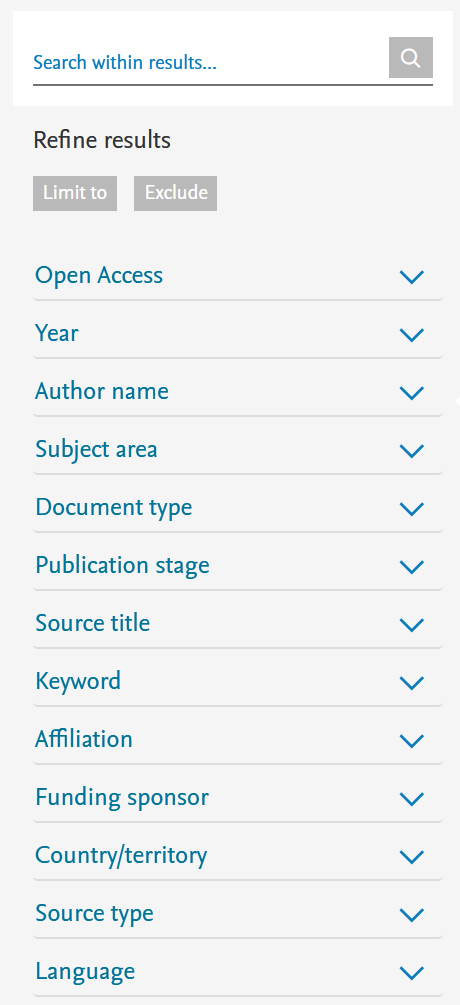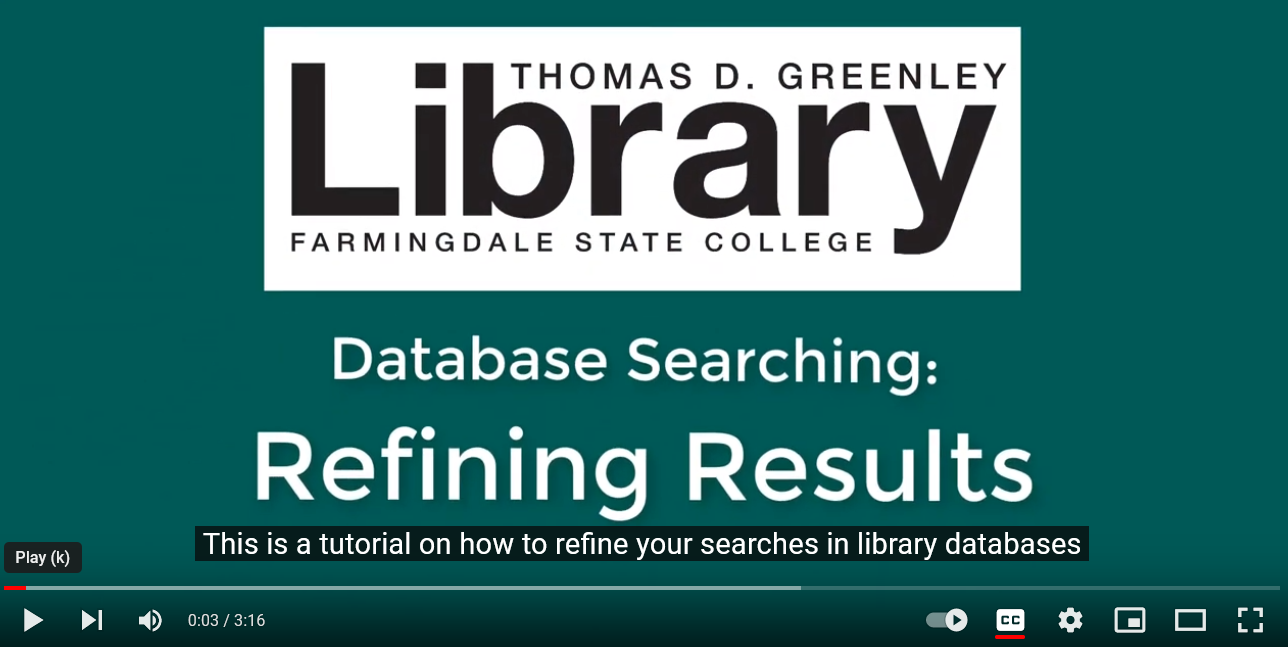Limiting search
LOCATION OF THIS PAGE: 1. MODULE / BASICS OF USING DATABASES / LIMITING SEARCH
Search engines offer some easy and quick ways to limit the search to more focused results. These filters typically include the year of publication, language, format or type, topic etc.
Some databases contain some non-scholarly information along with scholarly documents. In these databases it is possible to limit the result to peer-reviewed/scholarly journals only.
Some of the limiters are not recommended
Many databases offer a possibility to limit the results just to open access -publications. This is not a relevant filter since the university has access to a huge number of journals subject to a charge, too.
Using the filter ‘Full text available’ might also be too limiting, since there are many other ways to access the articles than a direct full-text -link.
Adding limitations is easy
Limitations can be added before or after the execution of a query. This is done by activating filters from a search page (before) or from a sidebar menu in the results page (after).
NB! In some databases the filters might remain activated throughout the whole session unless you deactivate them, and in others they might disappear when you start a new search. Follow the current situation from the search page or from the results page.
For instance, options for limiting the list of results in Scopus database are as follows. Notice the possibility to either limit to a certain feature or exclude it from a search. This is not possible in every database.


Watch a video by Greenley Library explaining the use of limiters and other database tools of the Ebsco (3:16). The link in the picture takes you to Youtube:

(1/2023 LP)